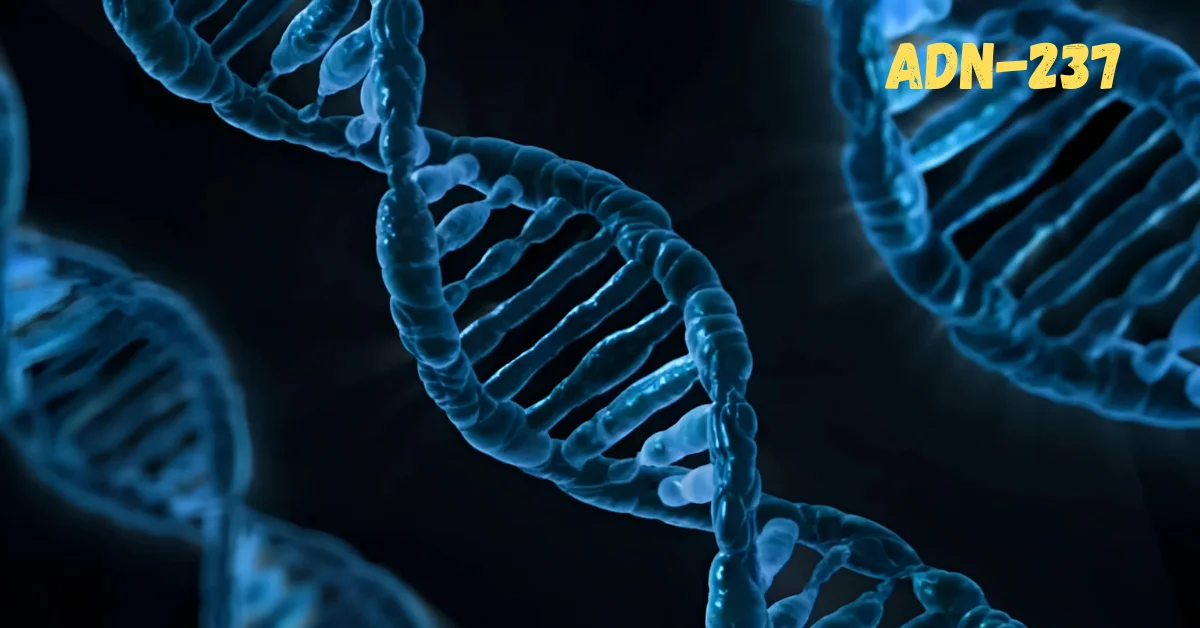ADN-237: Pioneering the Next Generation of Technological Advancements
ADN-237 is a topic that has garnered significant attention in recent years, particularly within certain industries and fields of research. Whether you’re involved in scientific research or simply curious about the latest advancements, understanding what ADN-237 is and how it works can provide valuable insights.
What is ADN-237?
ADN-237 is a novel compound developed to enhance various medical treatments. Unlike traditional medications, which often focus on a single ailment, ADN-237 offers a multifaceted approach, targeting multiple symptoms and underlying causes simultaneously. Researchers believe that could revolutionize how we treat chronic diseases, infectious conditions, and even mental health issues. Its unique chemical structure allows it to interact with cellular mechanisms in unprecedented ways. This adaptability makes it suitable for a range of applications, from oncology to neurology. The excitement surrounding ADN 237 stems from its promise to not only treat symptoms but also address root causes, potentially improving patient outcomes and quality of life.
The Science Behind ADN-237
ADN-237 targets specific pathways within the brain associated with cognitive function and neurological stability. Its molecular structure allows it to interact with neural receptors, promoting cellular health and potentially mitigating neurodegeneration. Studies have shown that ADN-237 may help reduce oxidative stress in neurons, a major contributor to cognitive decline. Additionally, the drug has been observed to stimulate the release of neurotrophic factors, essential for neuron survival, growth, and maintenance.
Why Synthetic Polymers? ADN-237 and the Shift in Medical Innovation

ADN-237 is part of a wave of synthetic compounds driving new breakthroughs in medicine. But why are scientists so focused on synthetic polymers?
The Unique Edge of Synthetic Polymeric Complexes
Unlike traditional drugs, ADN-237 and similar synthetic polymers are custom-engineered to interact with specific biological pathways, enabling high precision in treatments. This targeted approach could mean fewer side effects, improved effectiveness, and more tailored medical solutions.
From Traditional Therapies to Synthetic Wonders
Medicine has come a long way from simple herbal remedies to complex synthetic solutions. ADN-237 epitomizes this evolution, blending chemistry and technology to deliver a treatment that’s nothing short of extraordinary.
Applications of ADN-237 in Modern Medicine
The versatility of ADN-237 opens up a wide range of applications in modern medicine. Here are some of the key areas where ADN237 is making a significant impact.
Cancer Treatment
One of the most promising applications of ADN-237 is in the treatment of cancer. Its ability to selectively target cancer cells while sparing healthy tissues makes it an ideal candidate for reducing the side effects associated with traditional chemotherapy. Additionally, ADN237 has shown potential in overcoming resistance to existing cancer treatments, offering new hope to patients with difficult-to-treat cancers.
Autoimmune Disorders
Autoimmune disorders occur when the immune system mistakenly attacks the body’s own tissues. ADN-237 can help modulate the immune response, reducing inflammation and preventing further damage. Conditions such as rheumatoid arthritis, lupus, and multiple sclerosis are among the autoimmune disorders that could benefit from ADN237-based therapies.
Neurodegenerative Diseases
Neurodegenerative diseases, such as Alzheimer’s and Parkinson’s, are characterized by the progressive loss of nerve cells. ADN237’s ability to target specific pathways involved in these diseases offers a new approach to slowing or even halting disease progression. Research is ongoing to determine the full extent of ADN237’s potential in treating these debilitating conditions.
Genetic Disorders
Certain genetic disorders result from mutations that disrupt normal cellular functions. ADN237 has shown promise in correcting these disruptions by targeting the affected pathways. This precision medicine approach could provide effective treatments for conditions that currently have limited options.
Read Previous: Tartan high school ann bacon
Benefits of Using ADN-237
ADN-237 offers a plethora of benefits that make it a standout in modern medicine. Here are some of the key advantages:
Enhanced Efficacy
One of the primary benefits of ADN-237 is its enhanced efficacy compared to traditional treatments. Its ability to target multiple pathways simultaneously means it can address more than one symptom or cause at a time. This leads to faster and more comprehensive relief for patients.
Reduced Side Effects
Traditional treatments often come with a host of side effects, some of which can be debilitating. ADN-237’s targeted approach minimizes these adverse effects, making treatment more comfortable for patients. This is particularly beneficial for those undergoing long-term therapy.
Versatility
ADN-237’s versatility is another significant advantage. Its multiple delivery methods and broad range of applications make it suitable for various medical conditions. Whether you are treating a chronic illness or an acute infection, can be integrated into the treatment regimen effectively.
ADN-237 Role in Cancer Treatment
For cancer patients, treatment often involves aggressive, broad-spectrum drugs that can be harsh on the body. It offers a more refined approach by directly targeting cancer cells.
A Precise Attack on Tumors
ADN-237 is engineered to recognize and target cancerous cells without affecting healthy tissues. This precision could lead to fewer side effects, creating a gentler yet powerful cancer treatment.
Potential to Tackle a Variety of Cancer Types
Thanks to its adaptability, it could be tailored to target different types of cancer, potentially offering a customized approach for each patient.
Side Effects and Risks of ADN-237

ADN-237 is garnering attention for its potential benefits, but like any drug, it comes with a set of risks. Users have reported side effects ranging from mild to severe. Common reactions include headaches, nausea, and fatigue. These symptoms can be bothersome but are often manageable. However, there are more serious concerns as well. Some studies indicate that ADN-237 might affect cardiovascular health in specific populations. Monitoring heart function during treatment could be essential. Another risk revolves around long-term use. The implications of sustained exposure aren’t yet fully understood, raising questions about safety over extended periods. Individuals with pre-existing conditions should approach ADN-237 cautiously and consult healthcare professionals before starting the medication to ensure it’s appropriate for their situation.
Challenges and Considerations
Despite its potential, there are challenges associated with the use of AD’N-237. One of the main concerns is the need for more extensive research to fully understand its long-term effects, particularly in medical applications. While current studies are promising, more data is needed to ensure that AD’N-237 can be safely used in treatments. There are also considerations regarding the cost and availability of AD’N-237. As it is still relatively new, the production costs can be high, which may limit its use in some industries. However,
The Impact of ADN-237 on Energy Production
ADN-237 is making waves in the energy sector. Its unique properties lend themselves well to various energy production methods. One of the most exciting applications is in biofuels. By enhancing the efficiency of biomass conversion, ADN-237 can help create cleaner energy sources while reducing waste. Additionally, this compound shows promise in battery technology. Researchers are exploring its potential to improve energy storage capabilities significantly. In renewable energy systems, ADN-237 could optimize performance and increase output from solar panels and wind turbines. This means more sustainable options for consumers. Furthermore, its role in improving combustion processes could lead to less pollution from fossil fuels. As industries seek greener solutions, ADN-237 stands out as a beacon for innovation. The future looks bright with ADN-237 at the forefront of transforming how we produce and consume energy.
Ethical Considerations in the Use of ADN-237
As with any new drug, the ethical implications of widespread use require consideration. Questions around access, affordability, and long-term health effects of ADN-237 remain, especially as more individuals seek cognitive enhancement. Regulatory bodies and medical communities will need to develop guidelines to ensure that ADN-237 is used safely and equitably.
The Future of ADN-237
Looking ahead, the future of ADN-237 is bright, with possibilities limited only by the pace of ongoing research. Its integration into the wellness and healthcare sectors is anticipated to grow, as its benefits become more widely recognized and understood. This growth is likely to have a profound impact on mental health treatments, offering hope to those who have long sought effective, alternative solutions.
FAQs
What is ADN-237?
ADN-237 is a synthetic compound being investigated for its potential to treat neurodegenerative diseases like Alzheimer’s, as well as cancer and chronic pain. It is designed to interact with receptors in the brain to improve cognitive function and protect neurons from damage.
How does ADN-237 work?
ADN-237 works by targeting acetylcholine receptors in the brain, enhancing communication between neurons. This can help improve memory and cognitive functions, potentially slowing down cognitive decline in conditions like Alzheimer’s.
What are the potential benefits of ADN-237?
ADN-237 shows promise in improving memory, cognitive speed, and protecting brain cells from damage. It may also help slow the progression of neurodegenerative diseases and offer a less invasive treatment compared to surgical options.
Are there any side effects?
While ADN-237 is still in the experimental phase, early studies suggest it may cause mild side effects such as headaches, nausea, or dizziness. More research is needed to fully understand its safety profile.
Is ADN-237 available for use?
Currently, ADN-237 is not available for public use, as it is still undergoing clinical trials. Its approval for general use depends on the outcomes of these trials and further regulatory processes.
Conclusion
ADN-237 holds great promise as a groundbreaking compound with potential applications in treating neurodegenerative diseases like Alzheimer’s, as well as in cancer and chronic pain management. Through its targeted action on acetylcholine receptors, ADN-237 may improve cognitive functions, protect neurons, and slow the progression of diseases that affect memory and mental clarity. While still in clinical trials, the compound is showing encouraging results.
Stay Informed With: Webtoonxyz!






